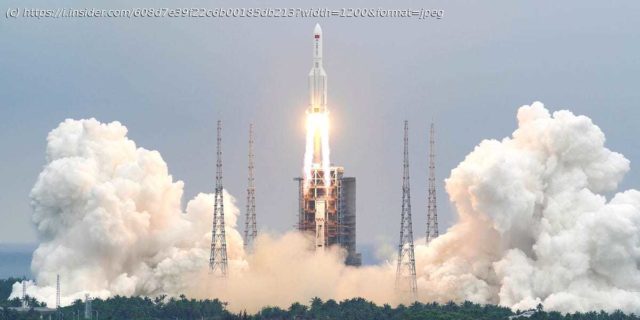Good
Subscriber Account active
since
Sometime this weekend, somewhere on Earth, it’s probably going to rain rocket parts.
That’s because a 22.5-ton …
Good Subscriber Account active since Sometime this weekend, somewhere on Earth, it’s probably going to rain rocket parts. That’s because a 22.5-ton cylinder is hurtling around the planet uncontrolled, losing altitude with each lap. It’s the body of China’s Long March 5B rocket, which launched the first module of the country’s new space station last week. The rocket body is expected to fall to Earth sometime this weekend, most likely on Saturday. That’s according to projections from the US Space Force, Russia’s space agency, and The Aerospace Corporation, a nonprofit research firm that receives US funding. At this point, it is impossible to accurately estimate where the rocket stage will fall. Current projections show it entering the atmosphere at some point in a roughly 20-hour window. During that period, the rocket stage will circle Earth several times. The spacecraft’s orbit takes it over a vast swath of the planet — from Los Angeles to New York to southern Europe to Beijing, down through most of Australia, Africa, and South America. Mostly, though, it will fly over oceans and uninhabited land. « Its trajectory covers much of the populated world. So if you can’t control where it reenters [the atmosphere], then there’s a real danger it will reenter someplace with people underneath it, » John Logsdon, founder of George Washington University’s Space Policy Institute and a former member of the NASA Advisory Council, told Insider. As the rocket stage falls through Earth’s atmosphere, friction will heat the surrounding air to roughly 3,000 degrees Fahrenheit. The rocket will likely fall apart in this heat, and parts of it may burn up, but other pieces may survive. Experts estimate that more than 5 metric tons — 11,000 pounds — of rocket parts will rain down somewhere on Earth. That might include fuel tanks, thrusters, large parts of the rocket’s engines, and bits of metal and insulation.






